Can you use a guitar amp for bass? This is a question that many people ask, and the answer is not always straightforward. In this article, we will discuss all of the things you need to know about using a guitar amp for bass. We will answer common questions and provide helpful tips on how to get the most out of your gear. So, whether you are just starting out or you are looking to make an upgrade, read on for all the information you need!
Table of Contents
Can You Plug a Bass Into a Guitar Amp
The simple answer to this question is yes, you can plug a bass into a guitar amp. However, there are a few things you need to keep in mind before doing so. First of all, not all guitar amps are created equal. Some amps are designed specifically for guitar, while others may be able to accommodate both guitar and bass. It is important to check the specifications of your amp before making any connections.
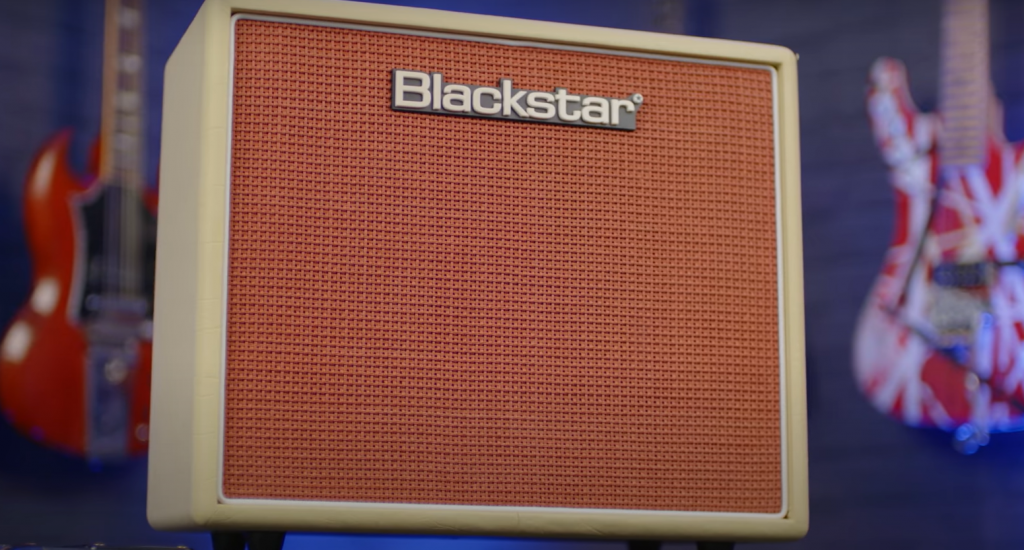
Another thing to consider is the wattage of your amp. A lower-wattage amp is going to be better suited for home practice or lower-volume situations, while a higher-wattage amp will be better suited for gigging or playing with a band. If you are planning on using your amp for both guitar and bass, it is a good idea to choose an amp with a higher wattage so that you can get the most out of your sound.
Finally, you will also need to take into account the size of your speaker. A larger speaker is going to be better for bass frequencies, so if you have a choice between two amps, opt for the one with the larger speaker. [1]
Differences Between a Bass Amp and a Guitar Amp
There are some key differences between bass amps and guitar amps that you should be aware of before plugging in your bass. For one, bass frequencies are much lower than guitar frequencies, so you’ll need an amp with enough power to reproduce those low notes accurately. Bass amps also have special EQ controls that allow you to shape the sound of your bass, whereas most guitar amps don’t have these features. Finally, bass amps typically have different input and output jacks than guitar amps, so you’ll need to make sure your cables are compatible with the inputs and outputs on your amp.[1]
How to Tell a Bass Amp From a Guitar Amp
The first thing you need to know is that not all amps are created equal. There are different types of amps for different instruments. For example, there are bass amps and there are guitar amps.
Bass amps are designed specifically for bass guitars. They have a few key features that make them ideal for bass guitars, such as:
- A higher power rating
- More low-end frequency response
- More headroom (the ability to handle higher volume levels without distortion)
Guitar amps, on the other hand, are not necessarily ideal for bass guitars. They often have less power and headroom, and their frequency response is geared more towards the mid-range and high frequencies. This can make them sound “muddy” when used with a bass guitar.
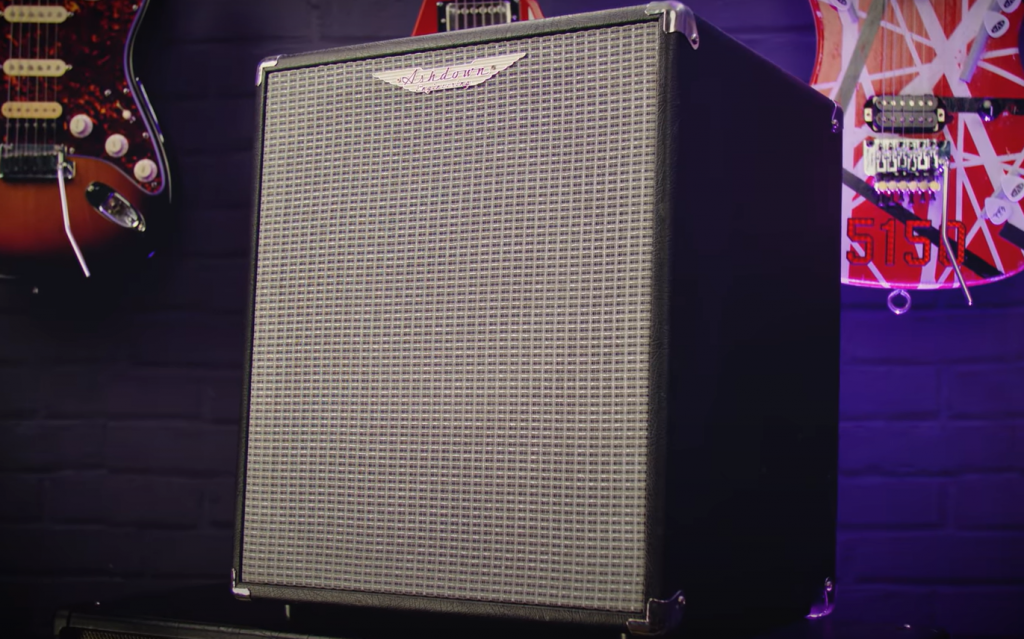
However, this doesn’t mean that you can’t use a guitar amp for bass. There are plenty of people who do it and get great results.
If you’re still not sure, the best way to find out is to try it yourself. Plug your bass into a guitar amp and see how it sounds. If you like the way it sounds, then go for it! Use whatever amp gives you the sound you’re looking for.[1]
Bass vs Guitar Practice Amps
At first glance, it may not seem like there would be much difference between a bass and guitar practice amp. After all, they both amplify sound so that you can hear yourself better while playing. However, there are actually some key differences between the two types of amps that you should be aware of before making a purchase.
For starters, bass amps typically have more power than guitar amps. This is because bass instruments require more low-end frequencies to sound good. As a result, a bass amp will have a higher wattage rating than a comparable guitar amp.
Another key difference is that bass amps often come with built-in effects such as compression and EQ. This is because these effects can help to shape the sound of the bass, making it easier to get a good tone. Guitar amps, on the other hand, typically don’t come with these types of effects built-in.[1]
Bass vs Guitar Combo Amps
There are many different types of combo amps on the market, and each has its own unique set of features. When it comes to deciding whether you can use a guitar amp for bass, it’s important to understand the difference between a bass combo amp and a guitar combo amp.
Bass combo amps are designed specifically for low-frequency instruments such as bass guitars. They typically have more wattage than guitar combo amps, as well as separate EQ controls for lows, mids, and highs. Additionally, most bass combo amps include an effects loop that allows you to connect your favorite pedals and effects units.
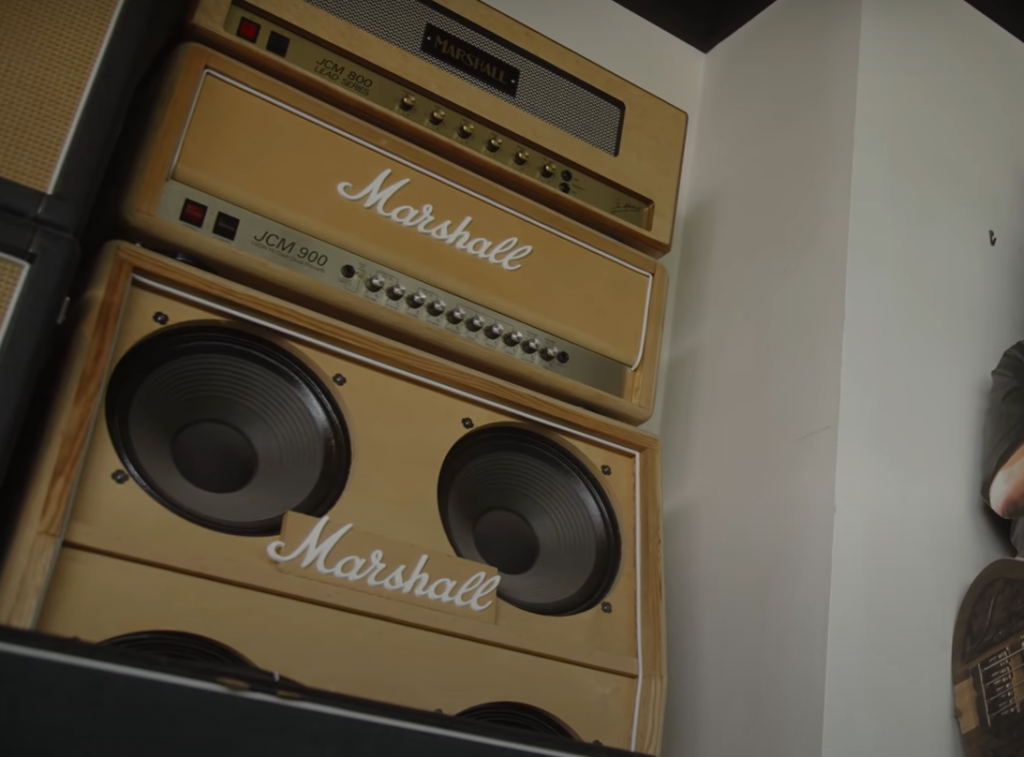
Guitar combo amps, on the other hand, are designed for higher-frequency instruments such as electric guitars. They usually have less wattage than bass combo amps, and they often have a single EQ control that covers all frequencies. Additionally, most guitar combo amps do not include an effects loop.[1]
Bass vs Guitar Stack Amps
Let’s take a look at the differences between bass and guitar amps. Bass amps are designed specifically for low frequencies, while guitar amps are designed for higher frequencies. This means that bass amps will have more headroom and be able to handle lower notes better than guitar amps. Additionally, bass amps usually have EQ controls specifically tailored for low-end frequencies, whereas guitar amps often have EQ controls that are better suited for higher frequencies.[1]
What Guitar Amp size should you use?
The size of the guitar amp is important for a number of reasons. First, it needs to be able to handle the power output of the bass. Second, it needs to be able to reproduce the low frequencies that are produced by the bass. Third, it should be loud enough to be heard over the drums and other instruments in a band setting.[2]
This will ensure that your bass has enough headroom and can produce all the low end frequencies without distorting.Another thing to consider is whether you need an amplifier with built-in effects or not. If you are just starting out, it is probably not necessary to get an amplifier with built-in effects. However, if you are in a band or playing live shows, it might be a good idea to get an amplifier that has reverb and/or chorus built in. This will make your bass sound fuller and more polished.
Finally, make sure to try out different amplifiers before you buy one. Every amplifier has its own unique sound character. Some amplifiers are designed to reproduce the sound of a vintage tube amplifier, while others are designed to have a modern, high-gain sound. The only way to know which one is right for you is to plug into each one and see how it sounds.
Can you use an Active Bass Pickup with a Guitar Amp?
The short answer is yes, you can use an active bass pickup with a guitar amp. However, it’s important to understand that not all guitar amps are created equal. While some amps are designed specifically for bass guitars, others are better suited for electric guitars. So, if you’re planning on using an active bass pickup with a guitar amp, it’s important to do your research beforehand to make sure that the amp is compatible.
One thing to keep in mind is that active pickups require more power than passive pickups. This means that you’ll need an amplifier that can handle the increased power draw. Additionally, active pickups often produce a higher output signal than passive pickups. As a result, you may need to adjust the gain levels on your amplifier to avoid clipping.
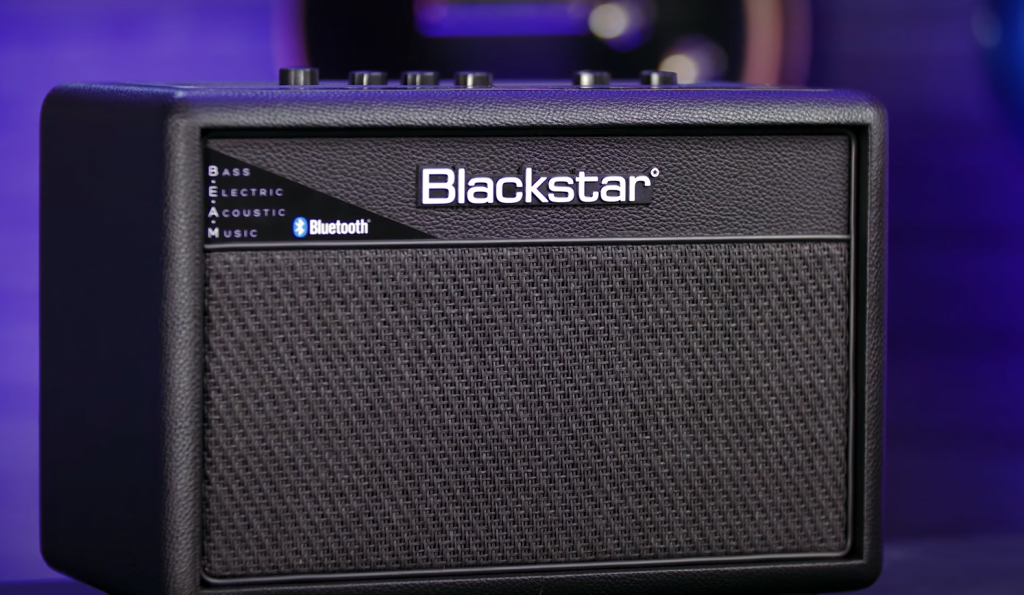
Finally, it’s worth noting that not all guitar amps are equipped with an effects loop. An effects loop is a dedicated connection that allows you to route your bass signal through external effects pedals before it reaches the amp’s preamp section. If your amp doesn’t have an effects loop, you can still use it with an active bass pickup, but you won’t be able to take advantage of any onboard effects that your amp might have.[2]
Solid-State or Tube Amp
The question of whether a solid-state or tube amp is better for bass is a bit more complicated. It really depends on the type of sound you’re going for. If you want a clean, punchy sound, then a solid-state amp is probably your best bet. If you’re looking for a warmer, more vintage sound, then a tube amp might be a better choice.
There are definitely some advantages and disadvantages to each type of amp. Solid-state amps are usually more affordable, and they’re also typically lighter and easier to transport. On the other hand, tube amps tend to have better build quality and they often produce richer, fuller sounds.[2]
Connecting Bass and a Guitar Amp
How Does the Tone Sound?
Let’s talk about how the tone will sound. As we mentioned before, if you’re going for a clean sound, using a guitar amp is not ideal. However, if you’re after a more distorted sound, then a guitar amp can give you some pretty cool results.
One thing to keep in mind is that the type of amplifier you use will have a big impact on the overall tone. For example, if you’re using a solid state amplifier, you’ll get a very different sound than if you’re using a tube amplifier.
So, if you’re looking for a more distorted sound, using a guitar amp can be a great option. Just keep in mind that the type of amplifier you use will have a big impact on the overall tone.[3]
Avoid Rattling and Distortion
If you’re using a guitar amp for bass, one of the most important things to keep in mind is avoiding rattling and distortion. You can do this by turning down the volume on your amp and by using a lower bass setting. Additionally, try to avoid playing too loudly or too softly. Playing at moderate volumes will help prevent your sound from becoming distorted.
Another way to avoid rattling and distortion is by using an EQ pedal. This will allow you to adjust the frequencies that your bass is playing at, which can help prevent rattling and distortion.
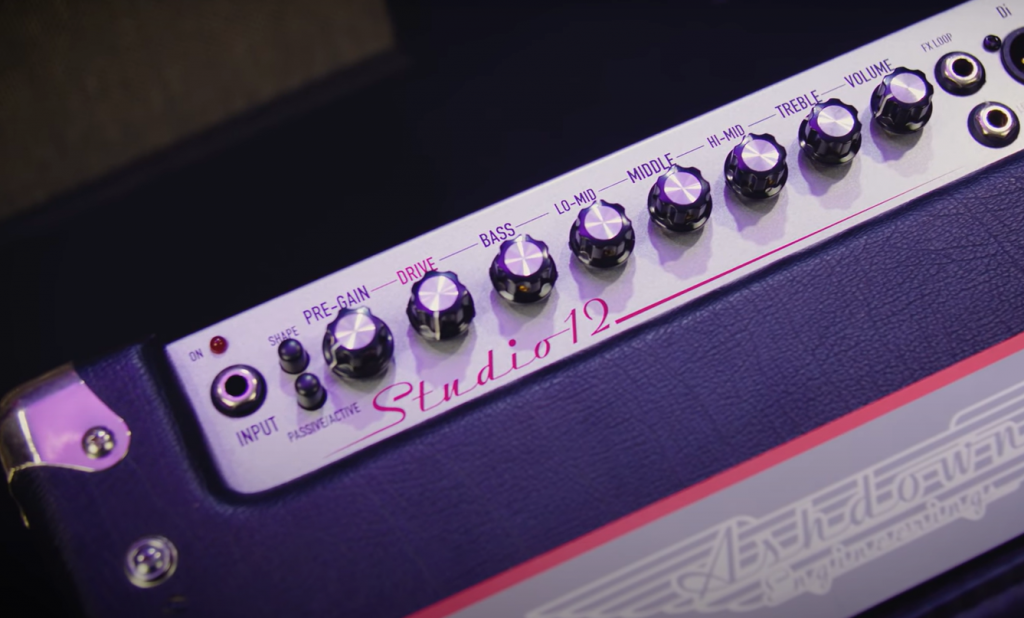
Finally, make sure that your strings are in good condition. Old, worn-out strings can cause all sorts of problems, including rattling and distortion. If your strings are in need of replacing, do so as soon as possible.[3]
Keep the Volume Low
When using a guitar amp for bass, it’s important to keep the volume low. This will help prevent the amp from distorting the sound of the bass and prevent feedback.
Another reason to keep the volume low is because bass frequencies are not as loud as treble frequencies. This means that you won’t be able to hear the bass as well if the volume is turned up too high.
If you’re playing with a band, you’ll want to make sure that your bass is still audible. The best way to do this is by using a DI box or an amplifier with a dedicated line out for your bass.
You can also use a guitar amp for bass by using the clean channel and setting the EQ to boost the low frequencies. However, this won’t give you the same sound as a dedicated bass amp.
Finally, keep in mind that most guitar amps are not designed to handle the low frequencies of a bass. This means that they will start to distort at lower volumes. If you need to crank up the volume, it’s best to use a dedicated bass amp.[3]
Bass + Guitar Amp = Metal Tone
Now that you know the answer to the question, “Can you use a guitar amp for bass?”, it’s time to talk about how to get a great metal tone using this setup. Here are some tips:
- Start by setting the guitar amp’s gain control to around halfway.
- From there, experiment with the EQ controls until you find a sound that you like.
- Once you have the basic sound dialed in, start playing with the amplifier’s distortion pedals or overdrive settings.
With these tips in mind, you should be able to get a great metal tone using a guitar amp and bass. So go out and give it a try![3]
How To Avoid Damaging Your Guitar Amp if you Have no Alternative?
If you have to use a guitar amp for your bass, there are a few things you can do to avoid damaging it. One is to use an attenuator. This will lower the volume of the signal going into the amp, which will help prevent it from being overdriven. Another option is to use a DI box.
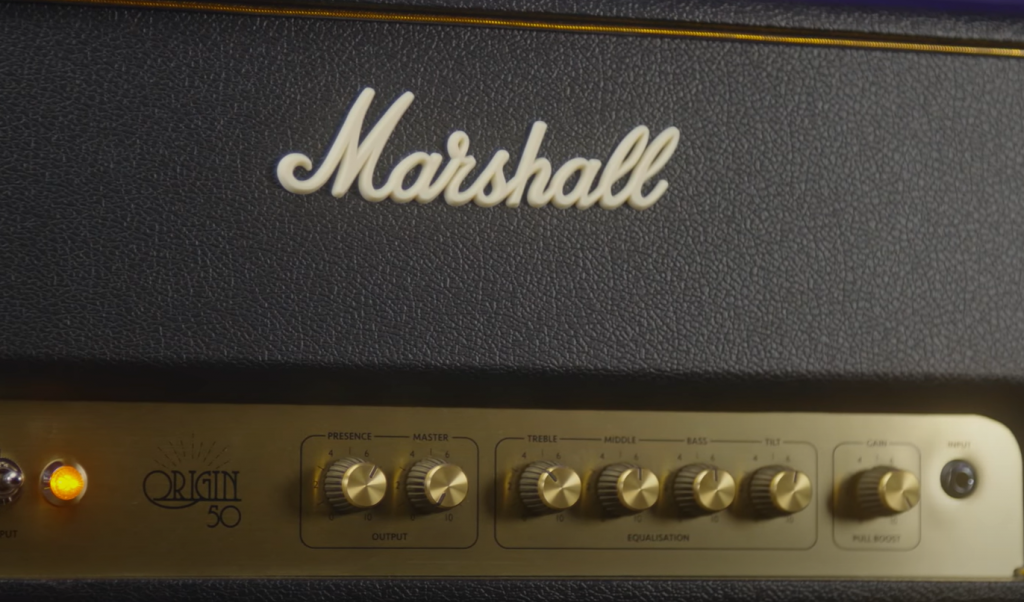
This will take the signal from your bass and convert it into a line level signal that won’t damage your amp. Finally, you can try using a different type of amplifier altogether. There are amps specifically designed for bass that won’t damage your guitar amplifier if you use them together.[4]
FAQ
Is bass easier than guitar?
This is a common question, and the answer isn’t as simple as you might think. Both instruments have their own challenges. However, many people find that bass is easier to learn than guitar because it has fewer strings and notes to learn. Additionally, the notes on a bass are spaced further apart than on a guitar, which makes them easier to identify.
That said, everyone learns at their own pace, so there’s no definitive answer to this question. If you’re struggling with one instrument more than the other, it may just be a matter of preference or learning style.
Can I use a guitar pedal for a bass?
The answer to this question is a bit more complicated. While you can technically use a guitar pedal for bass, we don’t recommend it. The reason is that most guitar pedals are designed to work with the frequencies produced by a guitar, which are typically much higher than those produced by a bass. As a result, using a guitar pedal on bass can often produce undesirable results, such as making the bass sound thinner or altering the tone in undesirable ways.
If you’re set on using a guitar pedal for your bass, we recommend doing some research to find one that’s specifically designed for use with bass. This will help ensure that you get the best possible results and avoid any potential problems.
Can guitar amps be used as speakers?
The answer is yes, you can use a guitar amp as a bass speaker. However, we would not recommend using a guitar amp for bass unless you are experienced with using amplifiers and understand how to properly set them up. If you are new to using amplifiers, we recommend contacting a professional or taking your bass to a music store for help choosing the right amplifier.
How do you make a bass amp?
A bass amp is designed to amplify low-frequency sounds. These amplifiers are typically more powerful than guitar amps, and they usually have a separate EQ section to help shape the sound. Some bass amps also have built-in effects, such as reverb or chorus.
If you’re just starting out, it’s probably best to invest in a dedicated bass amp. However, if you’re on a tight budget or you already have a guitar amp that you love the sound of, there’s no reason why you can’t use it for bass as well.
Can you play bass on an electric guitar?
The answer is a resounding yes! You can most certainly play bass on an electric guitar. In fact, doing so can actually be quite beneficial to your playing.
One of the main benefits of using an electric guitar for bass is that it gives you a wider range of tones to work with. When you use an electric guitar for bass, you can get a lot of different sounds out of it depending on how you set your amp and pedals. This can be great for giving your band a unique sound or for experimenting with new styles of music.
Another benefit of using an electric guitar for bass is that it can help you develop better technique. Playingbass on an electric guitar requires you to use different techniques than if you were playing guitar. This can help you develop a more well-rounded playing style and improve your skills overall.
Why do you need a bass head?
The main reason you need a bass head is because it gives you more control over your sound. With a guitar amp, you can only do so much to shape your tone. But with a bass head, you have more control over the EQ and other features that help you get the sound you want.
Another reason you might need a bass head is if you’re playing in a band with a lot of different instruments. In that case, you’ll need an amp that can handle the low frequencies without getting overloaded.
Finally, if you’re just starting out, you might not need a full-fledged bass head. You can probably get by with a combo amp or even just a practice amp. But if you’re serious about playing bass, you’ll eventually want to get a head so you can have more control over your sound.
Useful Video: How do cold temperatures affect plants?Guitar Amps vs Bass Amps… What’s The Actual Difference?
Conclusion
So there you have it! You can absolutely use a guitar amp for bass, but there are a few things you need to keep in mind. Make sure you choose an amp with enough power, and be mindful of the EQ settings. With a little bit of careful adjustment, you can get some great tones out of your guitar amp – so don’t be afraid to experiment!
Do you have any tips or tricks for using a guitar amp for bass? We’d love to hear them – leave us a comment below! And if you’re looking for more information on amps, check out our complete guide to bass amps. Happy playing!
References:
- https://guitargearfinder.com/faq/bass-with-a-guitar-amp/
- https://www.musicindustryhowto.com/can-you-use-a-guitar-amp-for-a-bass/
- https://tonetopics.com/plugging-a-bass-into-a-guitar-amp-all-you-need-to-know/
- https://killerguitarrigs.com/can-i-play-bass-through-a-guitar-amp/#

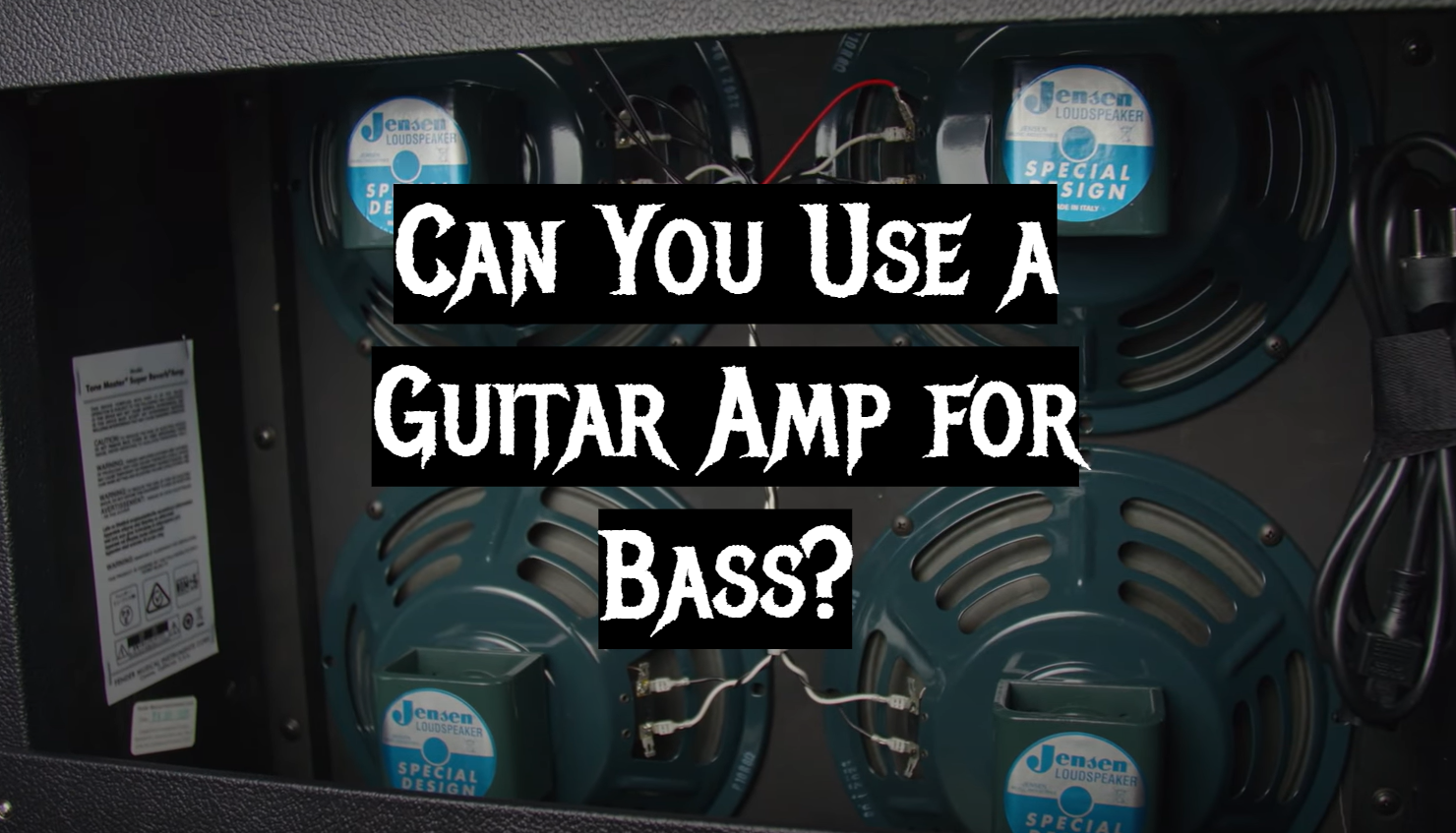




Leave a Reply